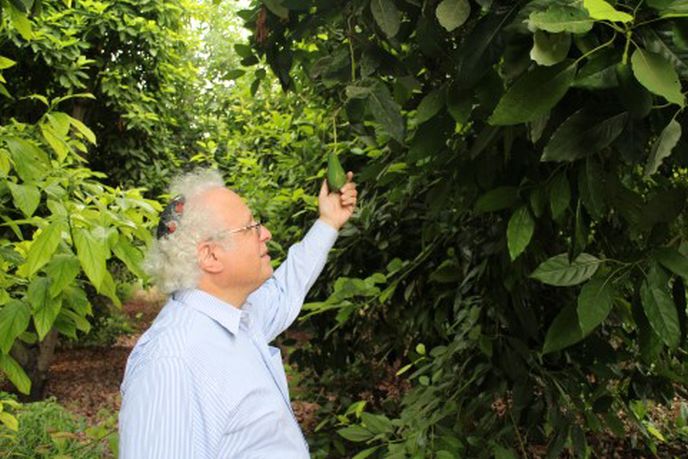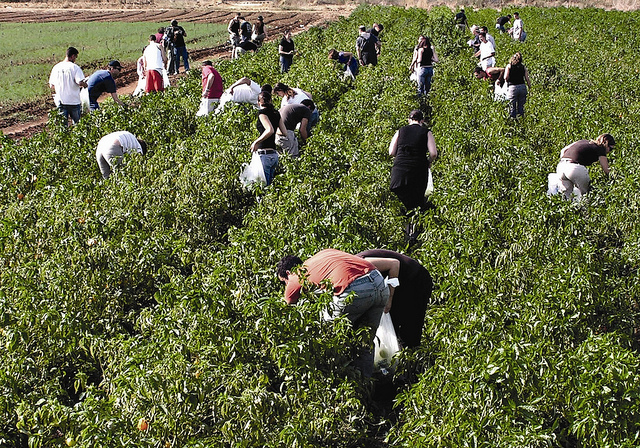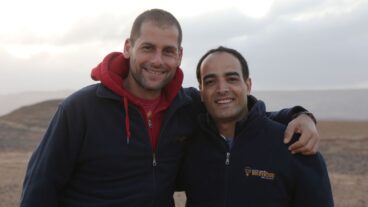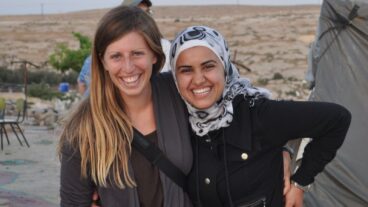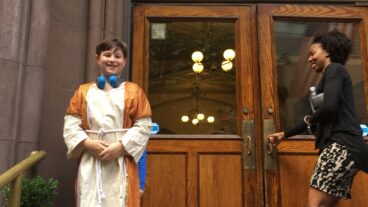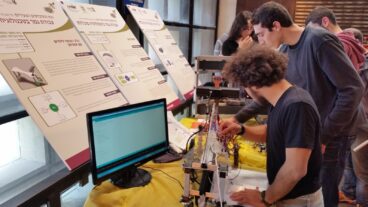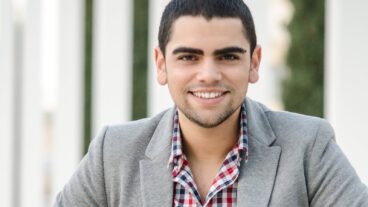Essential Question: What can one do to take a break without losing momentum?
Along with his Ivy League diplomas, a second-grade “master gardener” certificate hangs on the wall of Rehovot patent attorney Sandy Colb’s office. Now 66, the former Cleveland schoolboy went on to cultivate a unique farm-based philanthropy.
Through his Tov V’Hameitiv FoundationxTov V’Hameitiv Foundation – Tov v’Hameitiv Foundation fields follow the system of leaving the land fallow. Although most farmers who take a year off from agriculture suffer a financial loss, in the case of these fields there is no financial loss. That’s because they never made a profit in the first place, Colb partners with 70 Israeli social-service agencies to distribute 100 tons of fruits and vegetables every week, harvested from a total of 250 acres of fields he has leased, bought and borrowed.
Along with seeds and fertilizer, Colb sows a significant sum of shekels into the project. The return on his investment is the satisfaction of nourishing Israel’s most vulnerable citizens while feeding his own love of the land. “It’s expensive, but this is my veggie habit,” he tells ISRAEL21c.
Although Colb spends considerable time traveling for business and pleasure, and typically works 16-hour days, when he’s home in Rehovot he devotes two mornings a week to planting and picking with his 60 paid workers.
Forty of those workers are older Ethiopian Israelis with few employment opportunities. Eight others have special needs. In coordination with Leket, Israel’s national food bank, Colb hopes to bring more people with mental, emotional and physical challenges to work in the fields.
As one of Colb’s distribution partners, Leket also provides some 25,000 volunteers to pick crops every year. Many of the volunteers are tourists who devote a morning to the charitable project.
“Wherever I go around the world, I meet people who have picked in our fields, and they always remember what they picked,” Colb says.
A few people have considered trying to duplicate Colb’s enterprise in other countries, “but I don’t know of anyone actually doing it. You need a place where you can plant and grow all year round,” he explains.
Even in Israel, of course, each kind of vegetation has its season. Depending on the time of year, Colb’s workers are planting, tending and gathering citrus fruits, pecans, avocados, peaches, plums, apples, root vegetables, leeks, cabbage, cauliflower, broccoli, celery, eggplant, peppers, tomatoes and more — altogether about 40 varieties of healthful produce.
Tomatoes for everyone
Colb moved to Israel in 1974, just after earning his law degree at Harvard. Two years later he founded Sanford T. Colb & Co. Intellectual Property Law, one of Israel’s best-known patent-law firms.
Right from the start he planted a vegetable patch in his backyard, because ever since second grade he had never stopped gardening – even as a student at the University of Pennsylvania, Cambridge and Harvard universities.
“I would find a piece of land and start digging,” he says. “It’s wonderful to see stuff grow, especially big zucchinis. I have a picture of my older son, who is now 40, holding a zucchini that’s bigger than he is.”
When Colb’s crops in Rehovot became too plentiful for the family of six, a neighbor offered to take excess produce for clients in the food-distribution program run by Ezer Mizion.
“When the winter came I had no tomatoes to give her, and she said people needed them. So a friend and I started going once a week to the wholesale market in Rehovot and buying veggies to donate,” says Colb.
Realizing the vast need, he slowly began acquiring farming equipment, personnel and land. Some fields he bought; some he leases from nearby kibbutz and moshav communities; and some he borrowed from owners of unused or underused fields. Recently, the Weizmann Institute of Science — not far from where he lives – offered 50 unused acres for him to till.
Colb’s biggest single plot is 350 dunams (86+ acres). He was outbid on this plot when he tried to buy it about 10 years ago, but arranged with the winner to pay $60,000 per year to lease it. However, when the owner came from New York and saw Colb picking cabbages for the needy, he decided on the spot to issue a refund. The $60,000 still changes hands annually, going back to Colb to plow into his foundation.
The Rehovot municipality has encouraged his efforts and provided land for a greenhouse. One advantage of the greenhouse is that Colb can use it to grow vegetables during sabbatical yearsxsabbatical years – Once every seven years, farmers leave their land fallow. There are a few loopholes which is how Sandy Colb helps his community. such as this one, when the open fields are not sown but only harvested in keeping with biblical and rabbinic agricultural laws.
Following every sabbatical year, Colb and his workers plant wheat designated for Passover matzah for the next eight years. Colb and his wife, Paula, invite “tons of people” to join them in annual baking sessions at a facility run by Jerusalem’s Karlin Hasidim.
With four grown children and 13 grandchildren in whom they hope to instill an appreciation of agriculture, the Colbs have not neglected their home vegetable patch. “We have a little asparagus and carrots, fennel and various exotic fruits,” says Colb, and even this gets shared; he takes much of the produce to his synagogue for fellow worshipers to enjoy after Shabbat services.




